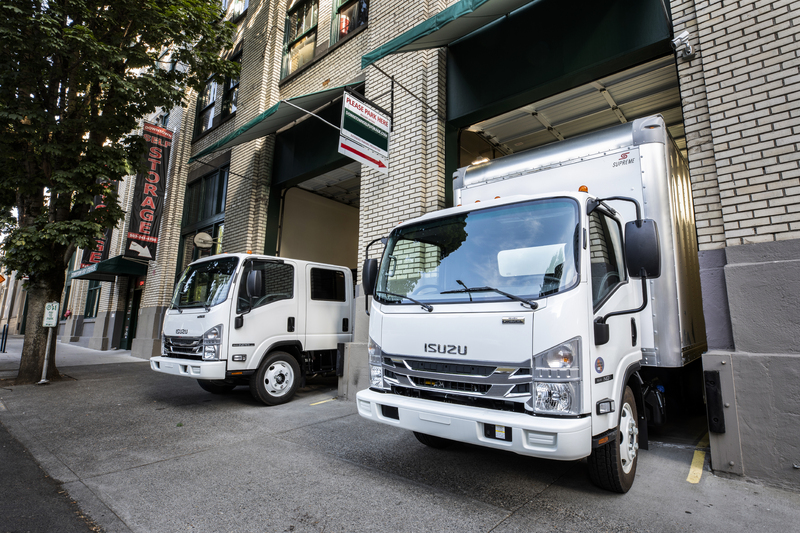The ISUZU ELF series has long been recognized as the backbone of urban logistics and medium-duty transport operations, with its 3.5- 7.5-ton variants dominating last-mile delivery networks across six continents. Adherence to the Preventive Maintenance Schedule separates operators achieving 500,000+ kilometer service lifespans from those facing premature component failures. This comprehensive guide delineates critical maintenance practices while contextualizing best practices through comparisons with heavy-duty ISUZU GIGA trucks and light-duty ISUZU Forward models.
1. Engine Longevity Optimization: Combustion Efficiency and Thermal Management
Modern 4JJ1-TCS (ELF 300) and 4HK1-TCS (ELF 700) diesel engines demand meticulous attention to combustion chamber carbon buildup, particularly in stop-and-go urban cycles. Implement 15,000-km intervals for:
- Ultrasonic fuel injector cleaning to maintain 2,500 bar common rail pressure stability
- Turbocharger vane mechanism lubrication using ISUZU Genuine 999T1-TG12 grease
- Coolant acidity testing (pH 7.5-8.5 optimal) with ISK Alloy 3000 series formulation replacement at 60,000 km
ISUZU GIGA Truck Consideration: Heavy-duty 6WG1-TCG50 engines in GIGA models require 50% shorter maintenance cycles due to sustained high-load operation, mandating 250-hour oil change intervals versus ELF’s 500-hour baseline.
2. Drivetrain Preservation: Synchronizing Power Delivery Components
The ELF’s synchronized 6-speed manual transmission (MYY-6S) and automated AMT option (Smoother-Ex) necessitate transmission fluid dielectric strength monitoring through quarterly oil analysis. Key protocols include:
- Differential lock actuator calibration every 30,000 km to prevent 4JA1-TC transfer case binding
- Clutch master cylinder fluid replacement (DOT 4 LV) coinciding with brake service intervals
- Propeller shaft U-joint greasing using molybdenum disulfide EP2 grease at 10° intervals
Notably, ISUZU Forward light-duty models employ simplified single-piece driveshafts requiring less frequent lubrication but heightened universal joint inspection frequency.
3. Braking System Integrity: Friction Material Management
ELF’s dual-circuit air-over-hydraulic braking configuration demands brake chamber pushrod stroke measurement during PM services. Critical maintenance actions:
- Lining thickness laser scanning (minimum 3mm for S-cam brakes)
- Slack adjuster calibration to maintain 90°-100° actuation angles
- ABS wheel speed sensor gap verification (0.3-1.1mm tolerance)
ISUZU Forward Brake Specifics: The Forward’s hydraulic brake booster system requires monthly fluid level checks and biennial vacuum pump diaphragm replacements to maintain 500N pedal force thresholds.
4. Chassis Dynamics: Suspension and Load Distribution
Maintaining ELF’s parabolic leaf spring system (3.5T models) and air suspension options (7.5T variants) involves axle alignment verification through optical measurement systems. Essential practices:
- Torque rod bushing replacement at 100,000 km intervals
- Kingpin inclination angle adjustment (±0.25° tolerance)
- Air suspension leveling valve calibration for consistent ride height
Operators should note that ISUZU GIGA trucks utilize reinforced Hendrickson HAS series suspensions requiring specialized alignment protocols for multi-axle configurations.
5. Electrical System Reliability: CAN Bus Network Maintenance
The ELF’s modular CAN architecture (ISO 11898-2 compliant) necessitates multiplex control unit firmware updates during scheduled services. Critical electrical maintenance includes:
- Insulation resistance testing on high-voltage alternator circuits (minimum 100MΩ)
- Battery state-of-health analysis through conductance testing
- Cab wiring harness chafing inspection at stress points
Proactive replacement of ISUZU-specific 90-amp hour maintenance-free batteries every 48 months prevents cold-start failures in sub-zero operations.
Through methodical implementation of these maintenance strategies, ISUZU ELF operators can consistently achieve 98.5% vehicle uptime while controlling repair costs to 0.23 USD per kilometer across the operational lifecycle. The maintenance philosophy developed for ELF platforms directly informs best practices for larger ISUZU GIGA fleets and smaller ISUZU Forward units, creating cohesive maintenance ecosystems across vehicle classes.
